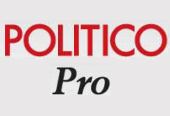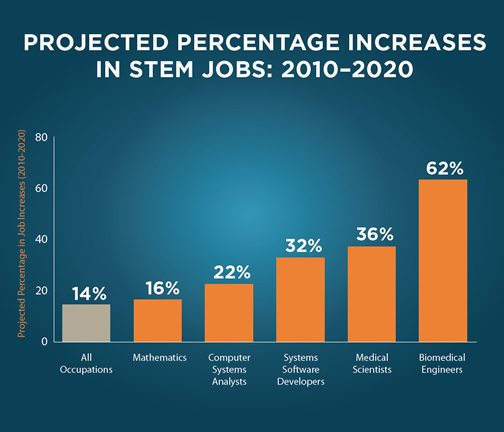
Event Review: POLITICO Pro’s “STEM Policy’s Next Steps”
Experts in technology and education discussed the successes, failures and future of science, technology, engineering, and mathematics (STEM) at POLITICO Pro’s “Tech Deep Dive: STEM Policy’s Next Steps” on Wednesday, June 12th. The panel included Tom Kalil, Deputy Director for Technology and Innovation for the White House, Becky Pringle of the NEA, Nina Rees, president of the National Alliance for Public Charter Schools and Eric Schwarz, the co-founder of Citizen Schools.
 American competiveness is at risk, and promoting STEM education could help the United States once again become a leader in the global economy. An effective STEM policy would make businesses more competitive by increasing the number of Americans who can work high-skilled positions in the rapidly rising science and technology fields. This could consequently lead companies to invest more in the United States and boost the American economy.
American competiveness is at risk, and promoting STEM education could help the United States once again become a leader in the global economy. An effective STEM policy would make businesses more competitive by increasing the number of Americans who can work high-skilled positions in the rapidly rising science and technology fields. This could consequently lead companies to invest more in the United States and boost the American economy.
The discussion, sponsored by Cognizant, covered a range of topics including the retention of college STEM majors, educational equity, and federal funding.
The problem of STEM education in America, the panel emphasized, is not only an issue of our proficiency, but also an issue of passion. College students are often rejecting jobs in STEM fields for the higher paying business careers on Wall Street. Just 40% of those who enter college as a STEM major graduate with a STEM degree. The experts all stressed, however, that the goal of engaging students in the sciences must begin at a much younger age – even before middle school.
One of the biggest obstacles to successful STEM education is the lack of capable teachers available to teach, especially at young levels. The panel discussed efforts to prepare and recruit more educators. They lauded the 100K in 10 Initiative, which hopes to train 100,000 STEM teachers by 2021.
The panel additionally addressed the inadequate number of STEM opportunities available for those who attend school in low-income areas. Although American proficiency in science is slipping, the low scores are almost solely driven by those in poverty. Moving forward, improving the opportunities for impoverished students, especially when it comes to online education, should be a top priority for STEM policy. The experts noted that competitions for funding such as Race to the Top could be more effective in promoting educational equity if funds were attached to students and not state governments.
 STEM professionals must play a larger role in promoting and giving back to science and math education, according to the panel. Both sides could benefit from a successful partnership, as students today become the employees of tomorrow. Working with professionals would give children first-hand experience in building and designing, which hones both problem-solving skills and creativity.
STEM professionals must play a larger role in promoting and giving back to science and math education, according to the panel. Both sides could benefit from a successful partnership, as students today become the employees of tomorrow. Working with professionals would give children first-hand experience in building and designing, which hones both problem-solving skills and creativity.
Yet the experts almost unanimously agreed that providing and maintaining sufficient funding for academic programs is still the primary objective for STEM policy. While the panel applauded President Obama’s efforts in promoting education in the sciences, it urged Congress not to let initiatives such as Investing in Innovation (i3) Fund not to go underfunded. All Americans will feel the impacts of adequate STEM funding. It would create jobs, increase domestic business investment, and spur scientific progress that will improve our quality of life. Spending money on education is an investment in our future and a boost to American competitiveness that should not be denied.
Click here to watch a video of the panel discussion.
Click here to read the American Security Project’s study on American Competitiveness.





